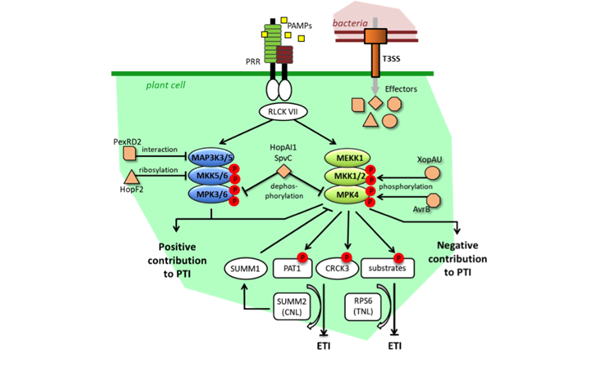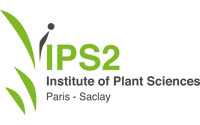MAPK activity in response to pathogen effectors : is the longer, the better ?
In plants, MAPK (Mitogen-Activated Protein Kinase) signaling pathways are central for adaptive responses to diverse abiotic and biotic stresses. MAPK roles are especially well documented in the context of PAMP-Triggered Immunity (PTI), where at least 3 MAPKs – MPK3, MPK4 and MPK6 – are known to be transiently activated (from a few minutes up to 1 hour) and to mediate essential reprogramming of defense gene expression. In contrast, MAPK functions in Effector-Triggered Immunity (ETI) are more elusive, although a growing number of recent publications have shed new light on this topic.
In a recent review in International Journal of Molecular Science, Lang J. and Colcombet J. from the Stress Signaling group at IPS2, have synthetized the current state of the art about MAPK signaling and pathogen effectors. First, they describe how pathogens can “manipulate” MAPK signaling to promote virulence, and how in parallel plants have developed mechanisms to protect themselves against these interferences. Then, they discuss the striking finding that the recognition of pathogen effectors can provoke a sustained activation (lasting several hours) of MAPKs, extensively analyzing its implications in terms of regulations and functions. In line with this, they also address the question of how a durable activation of MAPKs might affect the scope of their substrates, and thereby mediate the emergence of potential new ETI-specific responses. Overall, this review summarizes topics that are at the heart of the “Stress Signalling” research group, notably concerning the study of links between the spatio-temporal dynamics of MAPK activation and plant resilience.

Figure legend: MAPK targeting by pathogen effectors and MAPK surveillance by Nucleotide-binding Leucine-Rich receptors.
